- Hindus express hope for educational reform under AA administration
- Arakanese zat pwe performers struggle to survive as conflict halts traditional shows
- India-Arakan trade routes fully reopen after two-month closure
- When Prisoners Are Bombed, the War Has No Rules Left
- Two civilians killed, two injured in junta airstrike on Ramree village
Mro people face difficulty accessing drinking water at resettlement site in Maungdaw Twsp
Some 400 ethnic Mro people who have relocated near the village of Kyauk Pandu in northern Maungdaw Township are struggling to access drinking water.
22 Apr 2022
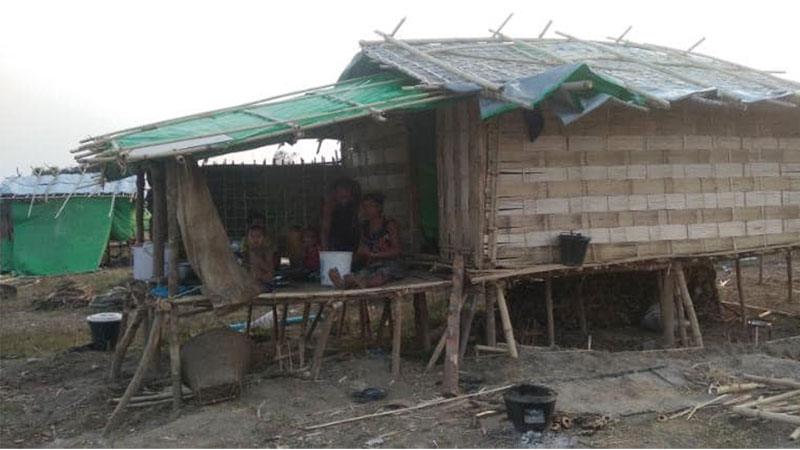
DMG Newsroom
22 April 2022, Maungdaw
Some 400 ethnic Mro people who have relocated near the village of Kyauk Pandu in northern Maungdaw Township are struggling to access drinking water.
They have moved there as part of a regime-sponsored resettlement plan for Mro people from Kyauktaw, Buthidaung, Maungdaw and Ponnagyun townships in Arakan State.
Four artesian wells have been built, but the water is salty and not drinkable, said residents. They instead have to fetch spring water from a location some four furlongs from their village, or ask for water from the Kyauk Pandu villagers.
U Shwe Than Maung, an ethnic Mro man who moved from Ginpi village in Kyauktaw Township, said: “We have to walk some four furlongs to the water source, where we have to wait for the whole day to get 40 litres of water that comes down from the mountain. Sometimes we only get 20 litres. We have to make do with it for a day.”
Because the water is not clean, adults and children often suffer from diarrhoea and other illnesses, according to resettlee U Maung Hla.
“We have often suffered from diarrhoea as the drinking water is not clean. No one is helping us regarding drinking water. We don’t know what to do,” he said. “There is only Kyauk Pandu village near us, and we can’t always fetch water from there.”
A total of 867 Mro ethnic people comprising 160 households from remote parts of Kyauktaw, Buthidaung, Maungdaw and Ponnagyun townships are planning to relocate to the site adjacent to Kyauk Pandu village. Currently, some 400 people from more than 50 households are living there.
They arrived around the end of February, and have had to roof their houses with tarpaulin sheets because nipa palm leaves, traditionally used for this purpose, are scarce.
“Nipa palm leaves are very scarce here. We can’t find enough nipa palm leaves for 50 households,” said resettlee U Lu Phyu.
The military regime has provided each household with 80 square feet of land plus K500,000 to go toward new home construction. It has also supplied rice rations and two acres of farmland each, according to residents, though many are currently making a living on forest resources.
The Mro ethnic people, considered a sub-group of the Chin, typically live in isolated villages in northern Arakan and southern Chin states, where their access to markets, education, healthcare and social services is significantly hampered by poor transportation and telecommunications links.
Mro people living in the Yoe Chaung and Thalu Chaung areas of northern Kyauktaw Township, for example, have limited access to roads, and rely largely on waterways for transportation. School-age youth are less likely to attend school due to a lack of regular teachers in Mro ethnic areas, which are far from western Myanmar’s urban population centres.
Arakan State’s ethnic Mro populations are concentrated in Kyauktaw, Ponnagyun, Buthidaung and Maungdaw townships.




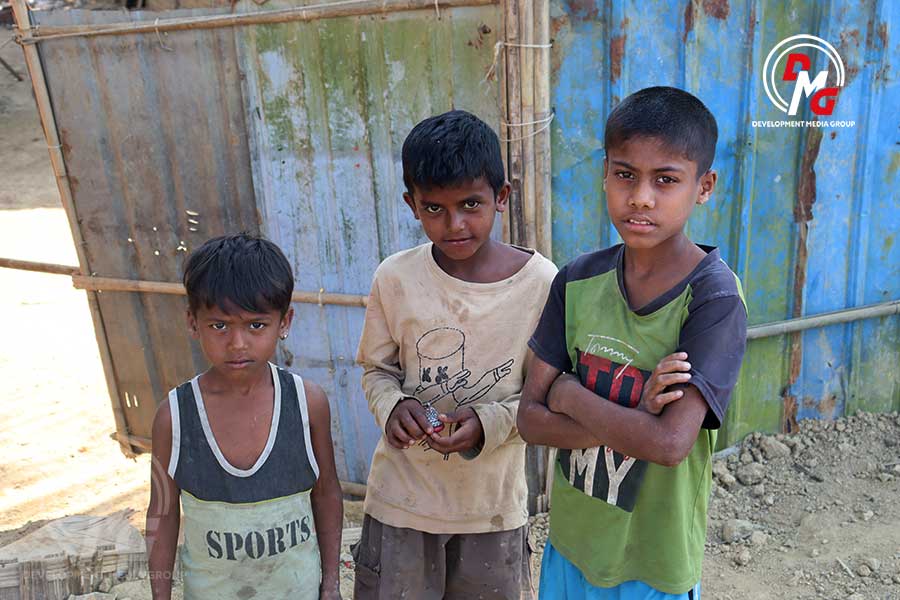
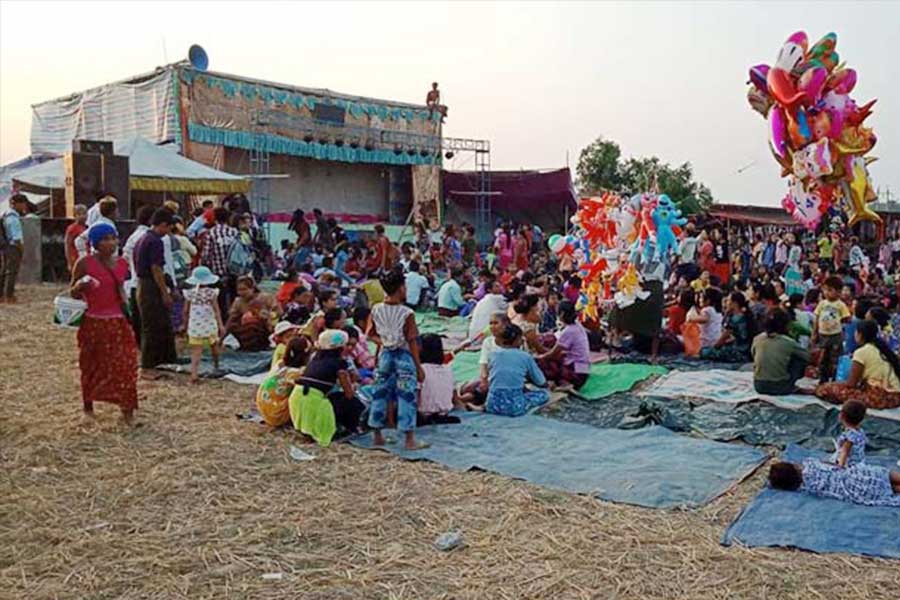
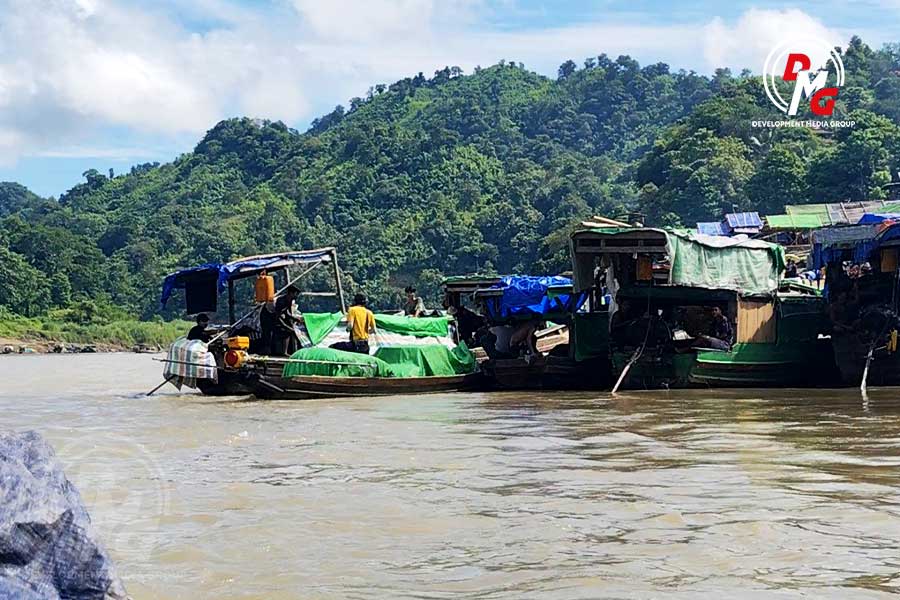
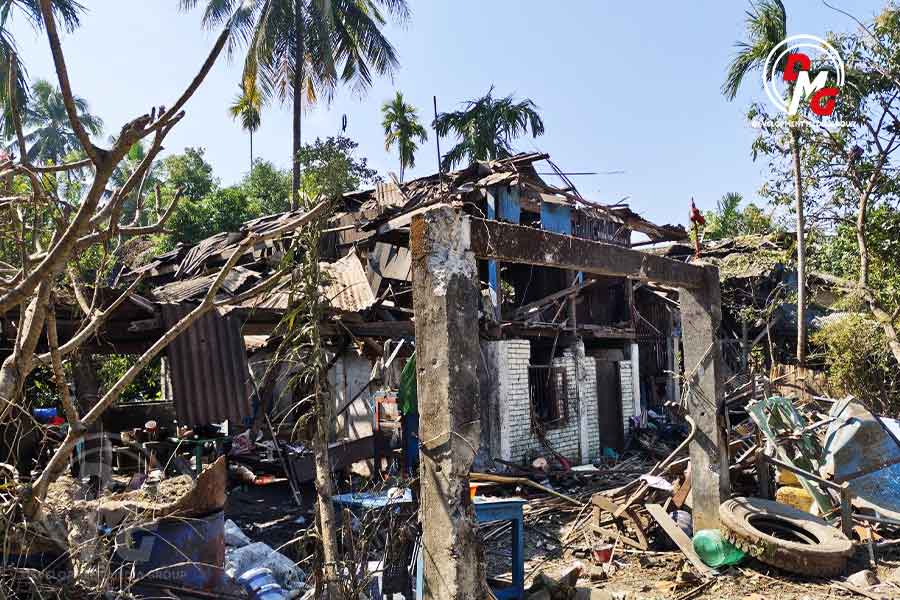
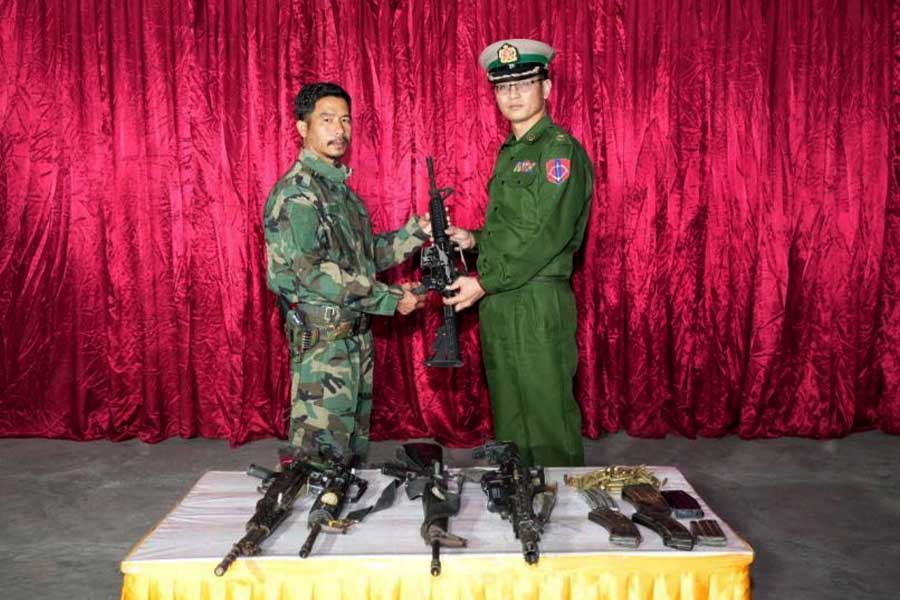








.jpg)